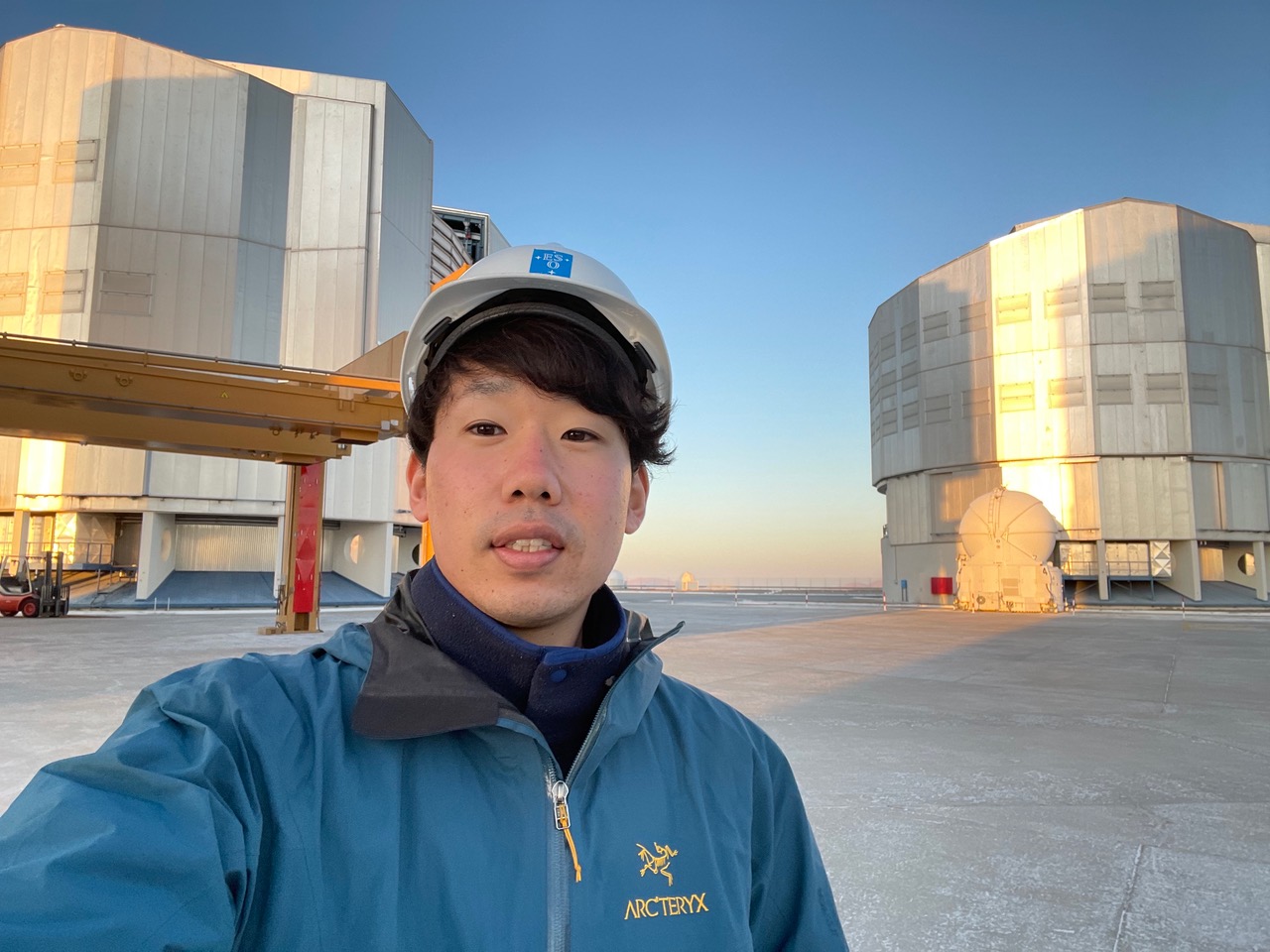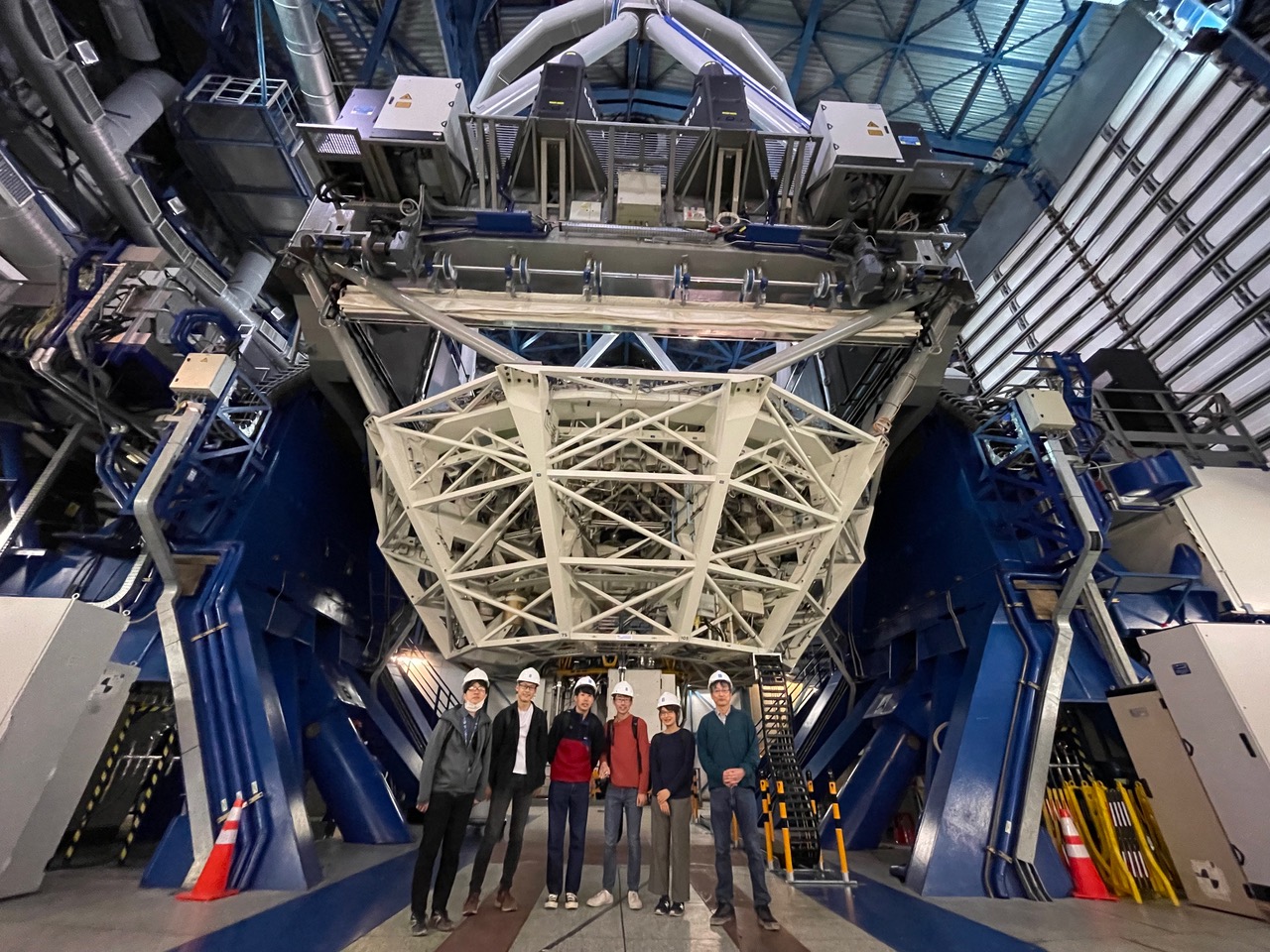Disclaimer: machine translated by DeepL which may contain errors.
Accompanied by Self-Suggestion, Going to the Other Side of the Earth
Hitoshi Beniyama (Department of Astronomy, 3rd Year Doctoral Student)

A Japanese language teacher at my alma mater used to say to me, "Dreams don't come true unless we speak them out, and there is no shame in talking about them. There is no shame in talking about your dreams. Unlike today, I was a pure young man, and I took his words to heart, declaring that I would enter The University of Tokyo on the day I heard what he had to say. For some reason, I had to enroll in another university, but I came around and entered this university as a graduate student, and I am writing this essay now.
At the same time, my mother, influenced by a martial arts fighter who had won a championship belt, said to me, "Your dreams will not come true unless you write them down. She said, "Write out your dreams, my sons. My mother, my brother, and I all wrote down our dreams and pasted them on the front of the refrigerator, where we could see them often. Here, too, I wrote down that I would enter The University of Tokyo. As a result, all three of our dreams came true.
Although there is a difference between spoken and written words, it became a habit of mine to say what I wanted to achieve from that time onward, when I felt the existence of so-called "self-suggestion. After I joined the Department of Astronomy at the University of Tokyo, I always murmured that I wanted to go to Hawaii and Chile, the Meccas of astronomical observation. It was only two months after I entered the university that I was able to visit the Subaru Telescope at the National Astronomical Observatory of Japan, National Institutes of Natural Sciences, Hawaii, although it was on the condition that I had to "dismantle the astronomical instruments". Although we were not able to see the full sky because of the daytime work, we were happy to see the large telescope with an aperture of 8.2 m. The group of astronomy majors from our university and the telescope's 8.2 m aperture were able to see the stars in the sky.
 Department of Astronomy members with the 8.2-meter Very Large Telescope, which uses a huge mirror to collect faint light from various celestial objects.
Department of Astronomy members with the 8.2-meter Very Large Telescope, which uses a huge mirror to collect faint light from various celestial objects.While I was looking forward to my next business trip, the spread of the new coronavirus has reduced my opportunities to visit foreign countries. I bought a Spanish textbook on a flea market app as a distraction, and in preparation for the coming opportunity, I greeted some of my professors who frequently visit Chile in Spanish. Ora, como esta? (Hello, how are you?) Muy bien (How are you?)." It sounds a bit pompous when written. In the meantime, I received an invitation to speak at an academic forum in Chile. Unlike the time in Hawaii, this time I could go abroad to present my research. Again, thanks to my self-motivation. Perfection.
The 4th Chile-Japan Academic Forum 2022 was held in Puerto Montt, a tourist city in southern Chile. Six parallel seminars, including one in the field of astronomy, were held over a two-day period to report the latest research findings. The meeting was very fruitful, as it provided an opportunity for joint research. The world-class Very Large Telescope at the Paranal Observatory, which we visited during the excursion, was truly "breathtaking. The four 8.2-meter aperture giant telescopes at an altitude of 2700 m and their auxiliary telescopes were also very large, twice as large as the telescopes we usually see in Japan. In addition to this, the spectacular desert terrain, which I had never seen before in my life, instantly occupied my photo folder. The starry sky I saw in the desert in the middle of the night was without a doubt the most starry sky of my life.
Now that I am in my third year of a doctoral program, my next self-imposed question may be about my job prospects. I have already set my sights on a research institute overseas where research on small solar-system bodies, my field of specialty, is flourishing, and I plan to meet with my future boss soon to convey my enthusiasm in my own "words. When you have a dream or goal that you really want to achieve, it may not be a bad idea to put it into words first, and thus borrow the power of self-suggestion.
Faculty of Science News collects essay submissions. We welcome all submissions, regardless of whether they are self-recommended or not. We especially welcome submissions from Faculty and graduate students. However, the Communications & Public Relations Committee will decide whether or not to publish your essay.
Please send your contributions to rigaku-news@adm.s.u-tokyo.ac.jp.
Published in Faculty of Science News July 2023


